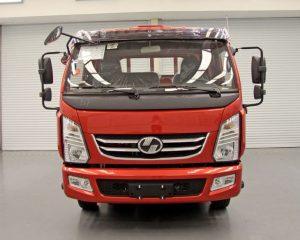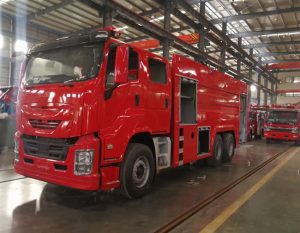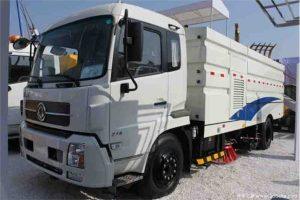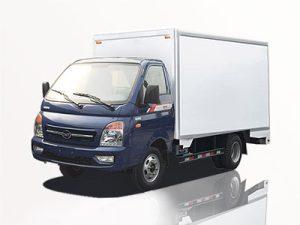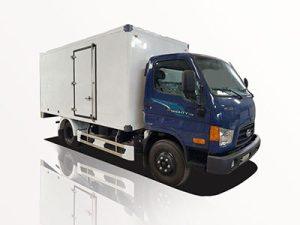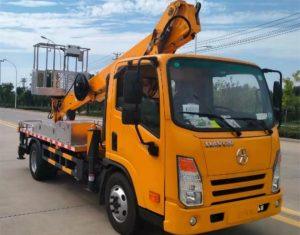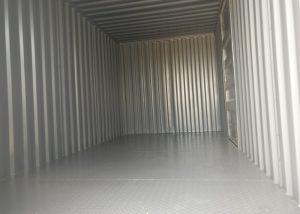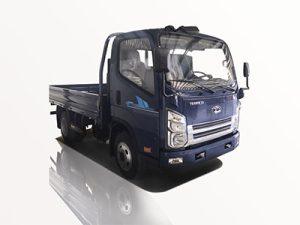Monday to Saturday - 8:00 -17:30
Everything You Need to Know About Mini Garbage Trucks
Introduction
In today’s world, where urbanization is on the rise, effective waste management has become crucial. Among the various waste collection solutions, the mini garbage truck has emerged as a popular choice for many municipalities and businesses. Offering versatility, efficiency, and affordability, these trucks have revolutionized how we manage waste, especially in densely populated areas. In this article, we will delve into mini garbage trucks, their advantages, features, and considerations for purchasing one.
What is a Mini Garbage Truck?
Mini garbage trucks are compact waste collection vehicles designed for navigating tight spaces and urban environments. Unlike traditional garbage trucks, they are smaller in size yet highly efficient for waste collection. Typically equipped with various modern features, these trucks are ideal for municipal waste management, commercial services, and even residential use.
Types of Mini Garbage Trucks
1. Compact Side-Loaders
Compact side-loaders are designed to pick up waste from the side. This design allows for efficient operations in narrow streets, making them suitable for urban settings.
2. Rear-Loaders
Unlike side-loaders, rear-loaders collect waste from the back. This type is popular for its straightforward design and can handle larger volumes, making it ideal for heavy-duty collection tasks.
3. Automated Mini Garbage Trucks
Automated mini garbage trucks utilize advanced technology to operate without human intervention. They rely on sensors and AI to navigate and collect waste, improving efficiency and safety.
4. Electric Mini Garbage Trucks
Electric mini garbage trucks are an eco-friendly option, running on battery power instead of traditional fuels. They produce less noise and fewer emissions, making them perfect for urban areas with strict environmental regulations.
Key Features of Mini Garbage Trucks
1. Size and Maneuverability
One of the standout features of mini garbage trucks is their compact size. These trucks can easily navigate through narrow streets, alleys, and tight corners where larger trucks cannot operate efficiently. Their design makes them perfect for urban environments and residential areas.
2. Payload Capacity
Despite their small size, many mini garbage trucks can carry substantial payloads. Most models offer capacities ranging from 1 to 4 tons, which is sufficient for small to medium waste collection tasks.
3. Fuel Efficiency
Mini garbage trucks are generally more fuel-efficient compared to their larger counterparts. Choosing a truck with a small engine size or an electric variant can lead to significant savings in operational costs.
4. Cost-Effective
The initial cost of purchasing a mini garbage truck is generally lower than that of larger models. Additionally, lower fuel costs and maintenance expenses contribute to long-term savings, making them an attractive option for municipalities and businesses.
5. Versatile Applications
Mini garbage trucks can be used for various waste types, including general waste, recyclables, and yard debris. Their versatility makes them ideal for contracts involving multiple waste streams.
6. Safety Features
Modern mini garbage trucks often come equipped with advanced safety features such as backup cameras, sensors for obstacle detection, and anti-lock braking systems, ensuring the safety of both operators and pedestrians.
Advantages of Mini Garbage Trucks
1. Space-Saving
Mini garbage trucks take up less space, allowing for efficient parking, storage, and maneuverability in restricted areas. This feature is particularly beneficial in urban settings where space is a premium.
2. Improved Collection Efficiency
The compact design facilitates faster access to collection points, leading to higher productivity. Garbage collection teams can complete their routes more swiftly without compromising service quality.
3. Enhanced Environmental Impact
With features like lower emissions and noise levels, mini garbage trucks contribute positively to urban environments. Electric models also promote sustainability by minimizing carbon footprints.
4. Community-Friendly
Because they can operate in residential areas without causing disturbances, mini garbage trucks are often seen as a community-friendly option for waste collection.
Practical Examples of Mini Garbage Truck Applications
1. Urban Missions
Many cities employ mini garbage trucks to manage waste collection in highly populated districts. Their ability to weave through traffic and narrow lanes makes them indispensable for urban waste management.
2. Municipal Services
Municipalities often deploy these vehicles in public parks, playgrounds, and recreational areas to manage waste effectively, ensuring cleanliness and public safety.
3. Dumpster Rental Services
Mini garbage trucks are perfect for small dumpster rental operations, providing efficient waste removal for residential and commercial clients.
4. Construction Sites
Thanks to their robust payload capabilities, mini garbage trucks are often used on construction sites to remove debris and waste promptly.
Buying Considerations for Mini Garbage Trucks
1. Determine Your Needs
Assess how frequently you collect waste, the type of waste, and the locations being serviced. This evaluation will help you choose the right truck with appropriate capacity and features.
2. Analyze the Costs
While the purchase price is essential, consider factors like maintenance expenses, fuel efficiency, and potential emergency repairs when budgeting for a mini garbage truck.
3. Review Regulations
Before purchasing a mini garbage truck, check local regulations regarding waste management vehicles. Some areas have specific standards for emissions and noise, especially when operating in urban neighborhoods.
4. Explore Financing Options
Whether buying new or used, explore financing options that suit your budget. Many manufacturers offer leasing plans, which can alleviate initial financial burdens.
5. Compare Manufacturers
Different manufacturers may have varying reputations for quality and reliability. Research customer reviews, after-sales services, and warranty terms to ensure a wise purchase.
Maintenance Tips for Mini Garbage Trucks
1. Regular Inspections
Perform routine inspections of critical components like brakes, tires, and fluid levels to ensure optimal performance.
2. Keep It Clean
Regular washing of the truck’s exterior and interior will prevent buildup that can cause unpleasant odors and issues with hygiene.
3. Optimal Storage
When not in use, park the mini garbage truck in a safe, secure location to protect it from vandalism or adverse weather conditions.
4. Service the Engine
Keep the engine running smoothly by adhering to the manufacturer’s recommended service schedule, including oil changes and filter replacements.
5. Train Drivers
Ensure that operators are trained in safe driving practices specifically for waste collection. This training can reduce accidents and improve on-the-job efficiency.
FAQs about Mini Garbage Trucks
1. What is the average cost of a mini garbage truck?
The cost of a mini garbage truck typically ranges from $30,000 to $100,000, depending on the specifications, features, and manufacturer.
2. How much weight can a mini garbage truck carry?
Most mini garbage trucks can handle between 1 to 4 tons, making them suitable for various small to medium waste collection needs.
3. Are mini garbage trucks suitable for residential use?
Yes, mini garbage trucks are excellent for residential use due to their compact size, maneuverability, and efficiency in collecting waste.
4. What kind of maintenance do mini garbage trucks require?
Regular maintenance includes inspections, oil changes, brake checks, and cleaning to ensure long-lasting performance.
5. Can mini garbage trucks be electric?
Yes, there are electric mini garbage trucks available that offer sustainable and environmentally friendly waste collection options.
6. What is the lifespan of a mini garbage truck?
With proper maintenance, a mini garbage truck can last anywhere from 10 to 15 years, depending on usage and care.


